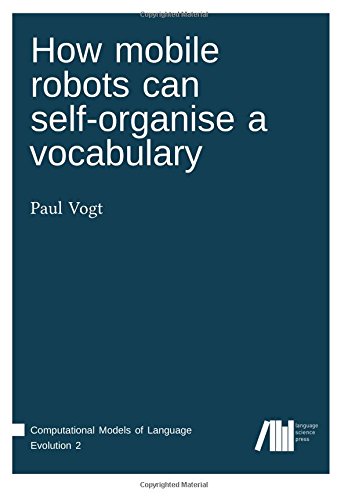
How Mobile Robots Can Self-organise a Vocabulary
by Paul Vogt
Publisher: Language Science Press 2015
ISBN/ASIN: 3946234011
ISBN-13: 9783946234012
Number of pages: 286
Description:
This book presents a series of experiments in which two robots try to solve the symbol grounding problem. The experiments are based on the language game paradigm, and involve real mobile robots that are able to develop a grounded lexicon about the objects that they can detect in their world.
Download or read it online for free here:
Download link
(2.6MB, PDF)
Similar books
 Formal Language Theory for Natural Language Processing
Formal Language Theory for Natural Language Processingby Shuly Wintner - ESSLLI
This text is a mild introduction to Formal Language Theory for students with little or no background in formal systems. The motivation is Natural Language Processing, and the presentation is geared towards NLP applications, with extensive examples.
(10823 views)
 Natural Language Processing for the Working Programmer
Natural Language Processing for the Working Programmerby Daniël de Kok, Harm Brouwer
We will go into many of the techniques that so-called computational linguists use to analyze the structure of human language, and transform it into a form that computers work with. We chose Haskell as the main programming language for this book.
(16448 views)
 Notes on Computational Linguistics
Notes on Computational Linguisticsby Edward Stabler - UCLA
What kind of computational device could use a system like a human language? This text explores the computational properties of devices that could compute morphological and syntactic analyses, and recognize semantic relations among sentences.
(16293 views)
 Prolog and Natural-Language Analysis
Prolog and Natural-Language Analysisby F. C. N. Pereira, S. M. Shieber - Center for the Study of Language
A concise introduction to logic programming and the logic-programming language Prolog both as vehicles for understanding elementary computational linguistics and as tools for implementing the basic components of natural-language-processing systems.
(20974 views)